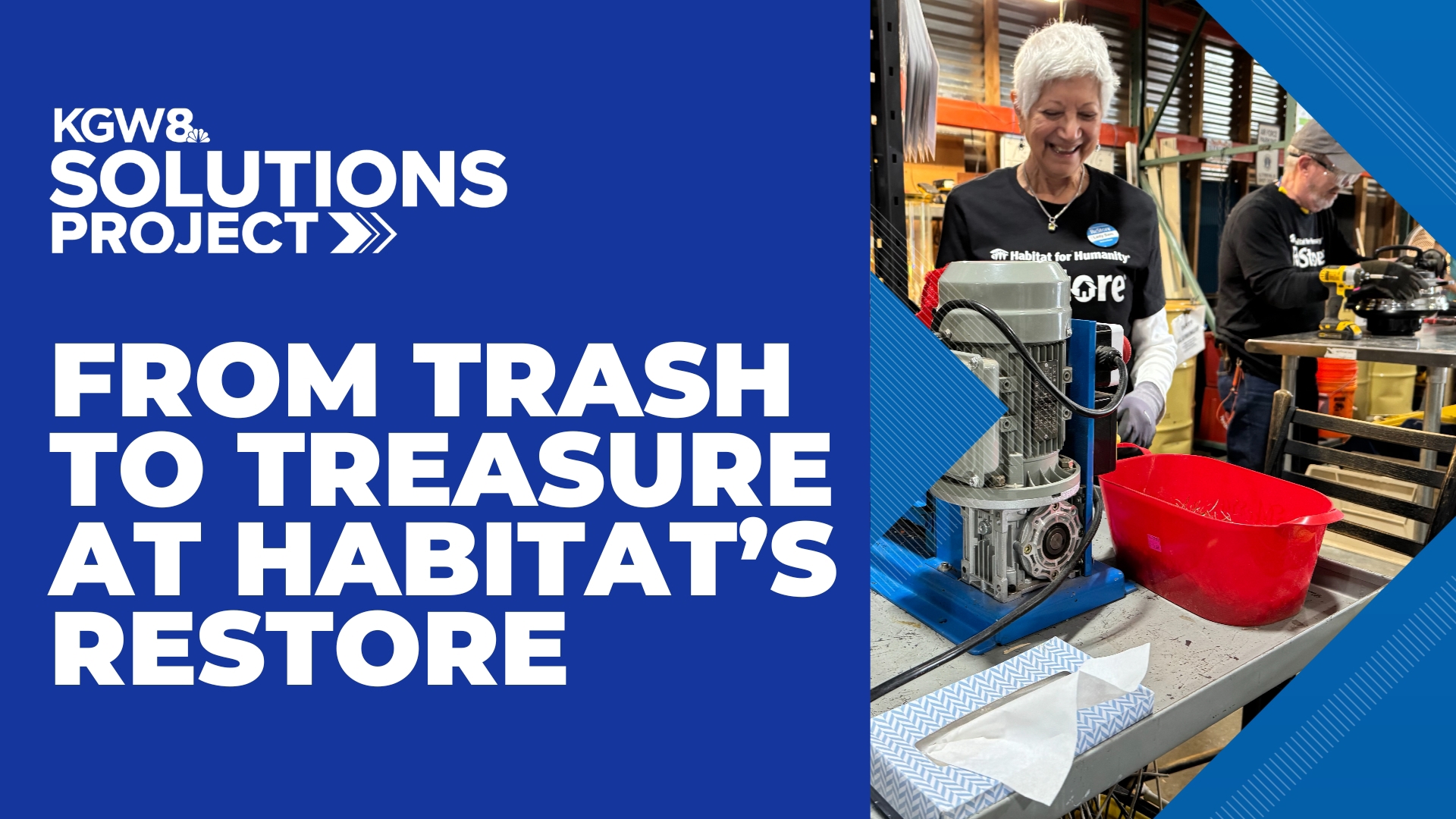BEAVERTON, Ore. —
Walking into the Habitat for Humanity ReStore in Beaverton can be a little overwhelming. Rows upon rows of used furniture, power tools and old appliances fill the cavernous space.
The name of the game here is reuse. All of the items for sale have been donated, but still have some life in them.
But if you head to the salvage and recycling shop behind the scenes, it’s just the opposite.
“If you bring it to me, I’m going to destroy it,” said Dick Eyde, a volunteer at the ReStore, as he stood over a busted fluorescent light fixture he was preparing to dismantle. “I get to take stuff apart with no hope of ever putting it back together again.”
While the store gets lots of donations that can still be put to get use, they also get many items that have reached the end of the line.
But that doesn’t mean they’re trash, explained Joseph Drushal, salvage and recycling manager at the store.
“People assume that because it's broken, it's garbage,” he said. “We're here to spread awareness that even your broken items can raise money for ReStore.”
And it’s not pocket change either.
Many items, especially electronics and lighting, contain valuable materials. Copper fetches the highest price per pound, but there’s also value in zinc, stainless steel, aluminum and the circuit boards that fill so many of our gadgets.
Dismantling those items and harvesting the materials has proven profitable for Habitat for Humanity, which uses the cash to support its main mission of building affordable housing.
“The scrap metal program in the last calendar year raised over $60,000 just in junk appliances and lighting,” Drushal said.
The program, with the exception of Drushal, is entirely powered by volunteers. Sam Sofaer, who’s been reporting for duty at the Beaverton location for more than two years, said it just feels good.
“I love Habitat,” she said. “Their whole mission, the whole thing, and it's a great group of people.”
For Eyde, volunteering to dismantle trinkets comes with multiple benefits.
“I’ve been a master recycler for a number of years,” he said. “When this opportunity popped up to go ahead and actually support an organization like Habitat for Humanity and go build some houses — and we keep stuff out of the landfill — this is three wins.”
The KGW Solutions Project is our commitment to report on ideas and strategies that address important issues in our community. We want to hear from you about solutions. Contact us at solutions@kgw.com

